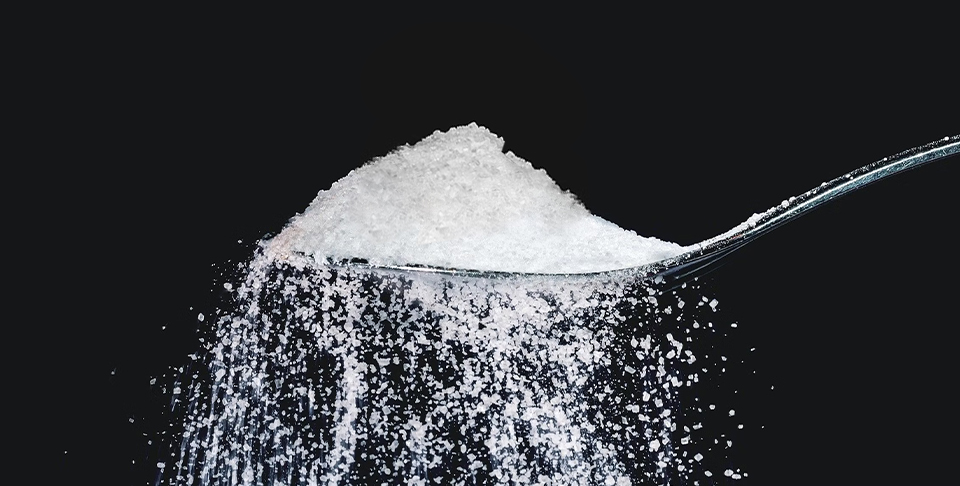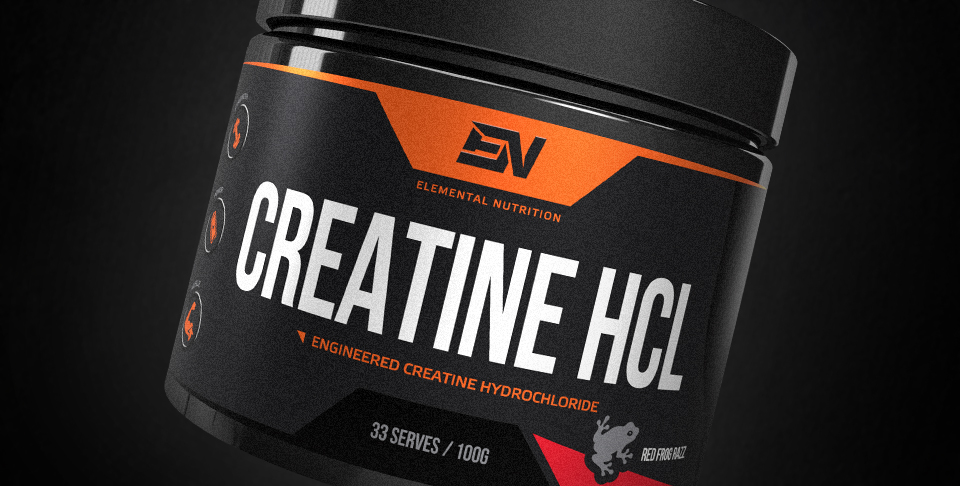Quick Creatine HCl Article Summary
- Creatine HCl is a more soluble form of creatine compared to creatine monohydrate.
- Creatine HCl is created by attaching a hydrochloride group to creatine, forming a salt.
- No loading or cycling phases are required with creatine HCl.
- Creatine HCl's increased solubility may lead to better bioavailability & absorption.
- Due to its enhanced solubility, lower doses of creatine HCl are required.
- Creatine HCl can eliminate potential side effects like bloating & cramping.
- A PEG creatine HCl study suggests it is as effective as creatine monohydrate at lower doses.
- Positive user reviews report reduced side effects & increased strength gains comparable to creatine monohydrate.
- Creatine HCl is slightly more expensive than monohydrate but may be worth it for some users.
- The recommended dose is 1 gram per day, taken with a sugary drink or post-workout shake.
- Creatine HCl can be found as a standalone product or as part of pre-and post-workout supplements.
- It can be stacked with other forms of creatine or used as a replacement for creatine monohydrate.
- Creatine HCl appears to be safe in healthy adults when taken as directed.
Creatine HCl has gained popularity among bodybuilders, weightlifters, & athletes, thanks to its improved solubility & bioavailability compared to traditional creatine monohydrate. In this guide, we'll explore the benefits, research, reviews, & recommendations for using creatine HCl to enhance your performance.
What is Creatine HCl (Hydrochloride)?
Creatine HCl is creatine powder, formed by attaching a hydrochloride group to creatine, creating a salt. This process increases the solubility of the molecule, resulting in better absorption & more efficient delivery to your muscles. As a result, you can take lower doses of creatine HCl while still experiencing similar-type strength & muscle gains as with creatine monohydrate.
Benefits of Creatine HCL
Creatine Monohydrate vs Creatine HCl
Creatine HCL is the most soluble form of creatine on the market. As a result, creatine HCL may be far more bioavailable and readily absorbed than creatine monohydrate. This means that creatine HCL is essentially a super concentrated form of creatine, and a much smaller dose is needed to achieve the same effect in regard to strength and muscle gain. Furthermore, only needing a tiny amount eliminates the need to drink large quantities of fluid.
Although uncommon, some people experience mild side effects when using creatine monohydrate, such as bloating, cramping, frequent urination, etc. These side effects have never been reported to be detrimental to health but may be a nuisance to some. Creatine hydrochloride (HCL) has been said to eliminate these issues.
For creatine monohydrate to be most effective, it is often recommended that a "loading phase", in which large doses (20 g/day) is to be consumed. Due to the higher bioavailability and absorption of creatine HCL, this loading may not be necessary. Furthermore, cycling may also not be necessary.
Creatine HCl Research
This product was patented fairly recently in 2009. As a result, most sports & exercise scientists have not yet had a chance to perform too much research on creatine HCl. Herda et al (2009) have published an article on the efficiency of polyethylene glycosylated creatine hydrochloride (PEG creatine HCl), which shows that a small dose (1.25 g) of PEG creatine HCl has a similar performance-boosting effect to a larger dose (5g) of creatine monohydrate. PEG creatine HCl is a modified version of creatine HCl. Although no research is currently available on regular creatine HCl, the results of the PEG creatine HCl study may be transferable to regular creatine HCl, because the benefits of these two compounds are similar. Regardless, we are keenly awaiting more research to be performed in this area.
Creatine HCl Reviews
It is difficult to ignore the large number of positive user reviews of creatine HCl. Even without many scientific publications about this product, these reviews are expected, because the rationale behind the product looks sound. Many individuals who have tried creatine HCl do indeed confirm reduced side effects, as well as reporting increases in strength gains, muscle building, & energy. It should not be long before science catches up with the population to clinically confirm the benefits of creatine HCl.
Negatives of Creatine HCl
The only complaint found in user reviews is the slightly higher cost of creatine HCl compared to monohydrate. Even though one gram of creatine HCl is equivalent to five grams of monohydrate, HCl is still more expensive per serve. This however is to be expected of newer technological products, & prices may come down in the future.
Creatine HCl Recommended Doses & Ingredient Timing
Unlike creatine monohydrate, only one gram of creatine HCl is needed per day. To increase absorption it should be taken with a sugary drink just as juice, or as part of a post-workout shake.
 Creatine HCl Supplements
Creatine HCl Supplements
You can find creatine HCl as a standalone product or as part of pre & post-workout supplements. If you don't already use a pre-workout formula, consider taking creatine HCl an hour before training to maximize your workout potential. Alternatively, look for pre-workout supplements that include creatine HCl along with other beneficial ingredients like caffeine. Post-workout supplements including carbohydrates & amino acids, containing creatine HCl, may also aid in recovery, making them a valuable addition to your supplement regimen.
Stacking Creatine HCl
Creatine HCL can be stacked with other forms of creatine, such as creatine monohydrate. Alternatively, it can be taken in place of creatine monohydrate. In this case, creatine HCl becomes a fundamental supplement along with protein, that can be stacked with any other supplement to meet your goals.
Creatine HCl: Recommendations & Final Thoughts
In this writer's opinion, creatine HCl is definitely a supplement worth taking should you want to increase strength & aid muscle hypertrophy. The strongest selling point for creatine HCL is its improved bioavailability & the elimination of potential side effects compared to creatine monohydrate. Plus the fact that a loading phase isn't required. Although creatine HCl is slightly more expensive than creatine monohydrate, these added benefits may make it a very attractive supplement, which should see creatine HCl continue to grow in popularity.
Herda et al (2009), Effects of creatine monohydrate and polyethylene glycosylated creatine supplementation on muscular strength, endurance, and power output. J Strength Cond Res, 23: 818-826


